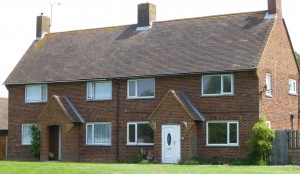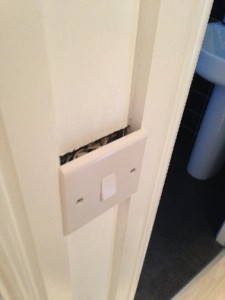According to The Mail on Sunday, four in every five buyers don’t bother with any home survey, let alone getting a full survey. This is despite the fact that if anything is found it can be used in negotiations to reduce the price. Buying a home is undoubtedly the biggest single purchase most people make in their lifetime. Get it wrong and it can be a mistake you could end up paying for during most of your lifetime!
Compared with the other costs involved with buying a home, getting a full survey done is relatively small beer when compared to legal fees, stamp duty and mortgage arrangement fees.
There are four main types of survey available.
Valuation survey
This is carried out on behalf of the mortgage lender and is not a condition survey. Do not be fooled into thinking this will give you protection and piece of mind – it won’t! A valuation survey is just that, the lender is checking the property is “valued at” actually worth the price agreed, or at the very least the amount of the mortgage. Sometimes these surveys are done by just driving past the home being bought!
Condition report
This is the most basic survey. It should highlight problems regarding structural movement, damp and woodworm, but it is not thorough. It will indicate which areas need attention but not what specific repairs are required. No professional advice is given. Typically, a condition report costs around £300.
Homebuyer report
Whilst less expensive than a full structural survey, it does provide more detailed information than a condition report. The price should include professional support or further explanations from the surveyor after the inspection. However, in some cases any specific issues noted may be advised for further investigation, leaving both buyer and seller none the wiser without further specialist investigation. A homebuyer report costs from £400 to around £650.
Full structural survey (aka Building Survey)
This is the most comprehensive survey and is strongly recommended, especially for those buying very old, listed, or period properties. It will provide a detailed, technical report regarding the condition of the property, highlight any defects and give advice on possible solutions and repairs. However the full structural survey is the most expensive and can cost around £1,000. As with anything, you get what you pay for!
Snagging inspection survey
For those buying a brand new home, a snagging survey is an absolute must. There is no need for a detailed building survey as new homes come with a 10-year warranty. However, the quality of new homes is generally poor, attention to detail is often found lacking and it can be a complete nightmare trying to get any snagging defects rectified after you have moved in.
Let’s face it, once a house builder has your money what incentive do they have to fix problems quickly? It is no good thinking, “it is a new home with a warranty” because 96% of new homeowners experience problems of one sort or other and getting them fixed is always a hassle. The money spent on a professional snagging inspection will always be money well spent. Compared to other surveys, they are relatively inexpensive too, typically costing from £250 to around £450 depending on the size of the home inspected. Some of the better snagging services include liaising with house builders and support after you move in too. Advice on choosing a snagging inspector.







